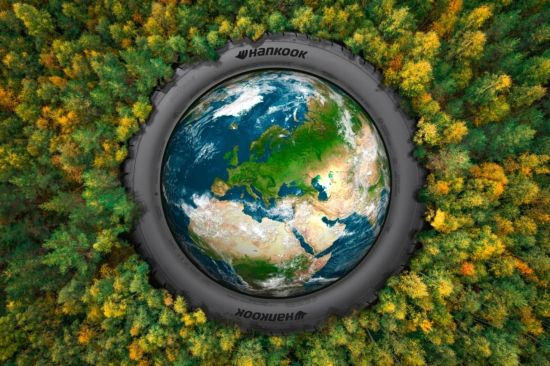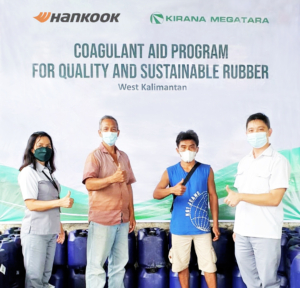Hankook comments on S&P Global Gold Class Sustainability
 Hankook gets gold in S&P Global Sustainability Yearbook 2022 (Photo: Hankook)
Hankook gets gold in S&P Global Sustainability Yearbook 2022 (Photo: Hankook)
Hankook has been certified S&P Global Gold Class in S&P Global’s Sustainability Yearbook 2022, making the tyre manufacturer one of the top companies in the US financial services provider’s ranking. Based on the S&P Dow Jones World Sustainability Index, the yearbook is regarded as one of the world’s foremost sustainability indices. Of the 7,554 companies evaluated for the 2022 yearbook, 75 received gold, 89 silver, and 106 bronze awards for outstanding achievement. Hankook president and CEO Sooil Lee said, “The award is a testament to our commitment to a more sustainable future. To further drive our growth as a global acting tyre company, we plan to strengthen our social, environmental and financial activities globally.”
S&P Global awards the Gold Class to only the top one per cent of companies assessed, and besides Hankook, only one other automotive supplier is among them, fellow tyre manufacturer Pirelli. Other tyre manufacturers to have joined the Yearbook in 2022 include Nokian, which was awarded the bronze award, and Bridgestone. Hankook was recognised as the top performer in the sector, achieving the best rating with 78 out of 100 points. 2021 marked the sixth consecutive time the tyre maker appeared in the Dow Jones World Sustainability Index, underlining its leading environmental, social and corporate governance (ESG) position.
Hankook established an organisation dedicated to CSR (Corporate Social Responsibility) more than ten years ago. Last year, Hankook established a new ESG committee within the board to strengthen ESG management. Through eight subcommittees, the company engages all employees in its vision of sustainability, improving its performance in this area. The company has set challenging goals and cooperates with stakeholders, resulting in a variety of activities that contribute real value to society.
Sustainability through the product life cycle
Hankook is providing eco-friendly coagulants to Indonesia’s natural rubber suppliers (Photo: Hankook)
Hankook exemplifies its sustainability focus through the sustainable value chain. In 2018, Hankook published its E-Circle statement, which includes a strategy for sustainable material technologies. The company’s sustainable natural rubber policy, which was introduced at the same time, was updated in 2021 in line with the Global Platform for Sustainable Natural Rubber (GPSNR) guidance. In addition to striving for a more sustainable value chain and reduced environmental impact of products throughout their life cycle, Hankook continues to donate to support the mobility of local social institutions.
Hankook’s commitment to sustainable natural rubber production is exemplified by its pledge to provide a total of 6,000 litres of formic acid to more than 100 producers in Indonesia. Formic acid serves as an environmentally friendly and responsible coagulant for rubber production that contributes to greater occupational safety and health protection. Other coagulants harm vegetation, contribute to water pollution and can thus threaten biodiversity in wetlands. The tyre industry accounts for around 70 per cent of the natural rubber produced and consumed worldwide, and around 85 per cent of global rubber production relies on smallholders in Southeast Asia.
In addition, the tyre maker is also participating in a blockchain-based project on the traceability and sustainability of natural rubber. Project Tree by international trading company Itochu Corporation is the first step to establish traceability in the natural rubber industry by using blockchain technology. Hankook’s goal is to work with its supply chain partners to improve the quality of life for natural rubber producers, increase the quality of natural rubber and minimise environmental impact.




Comments